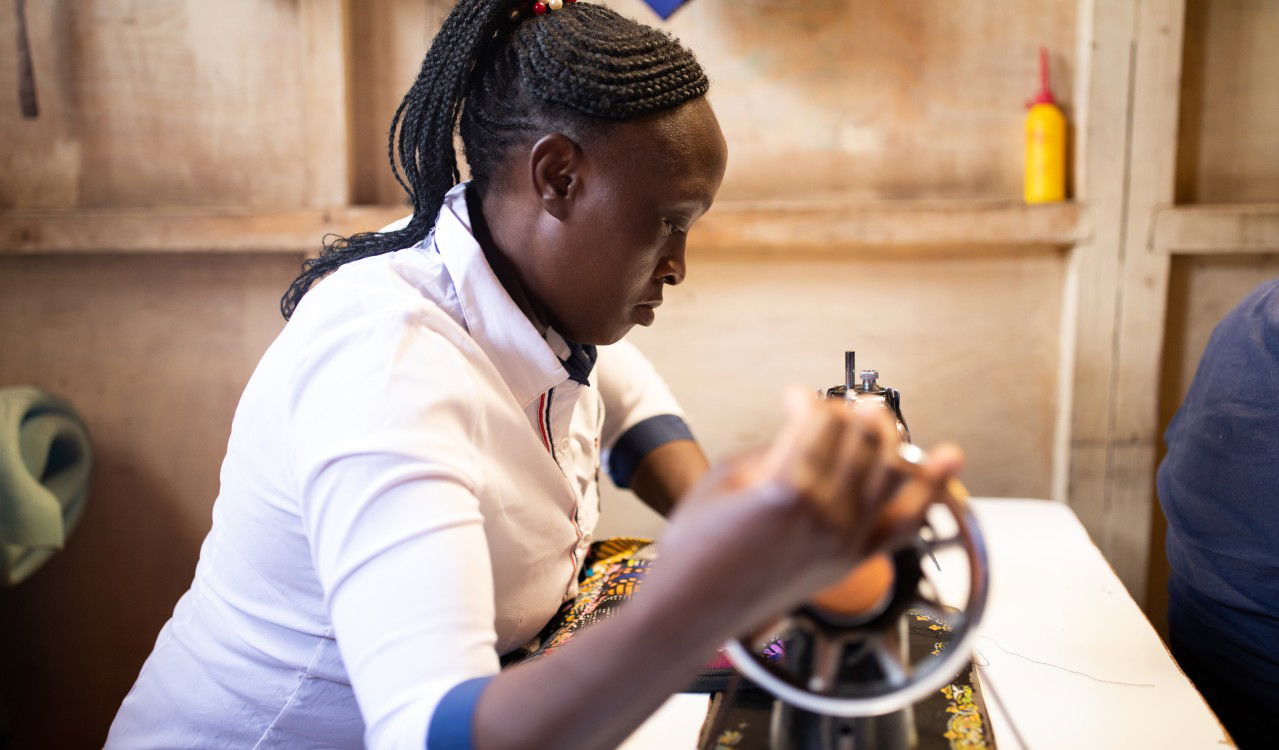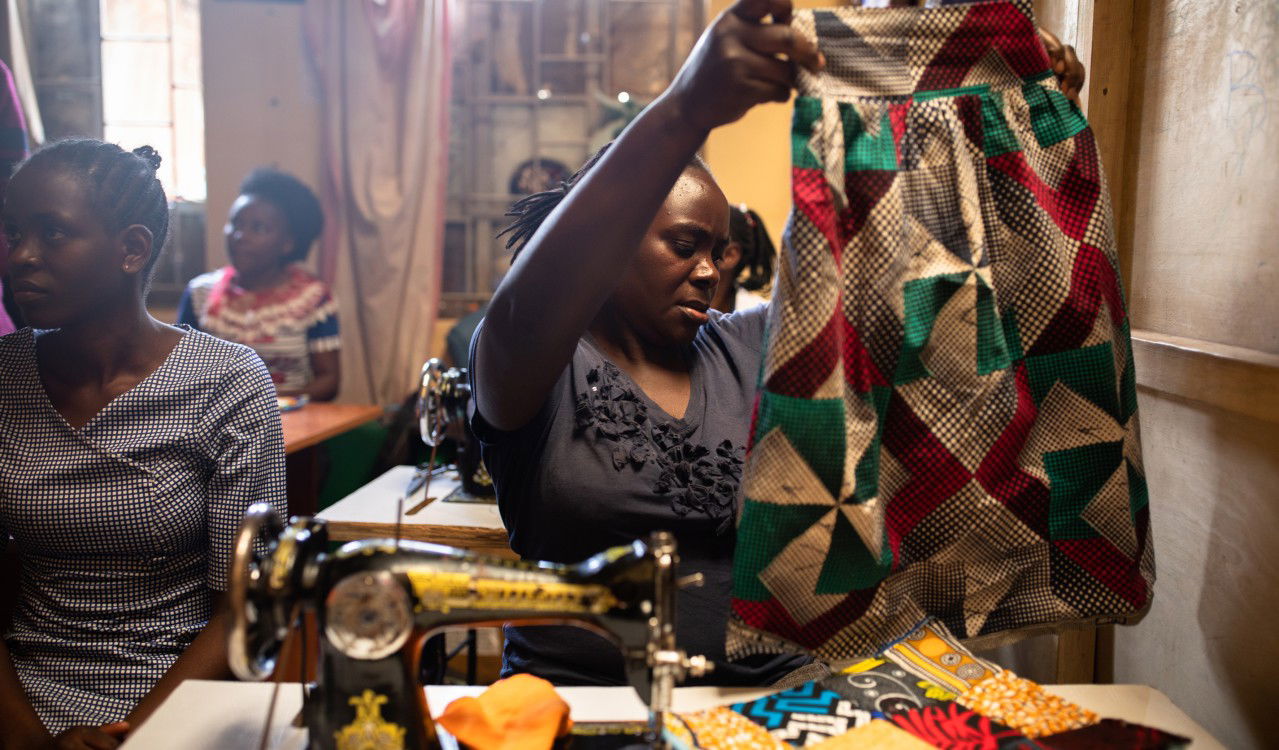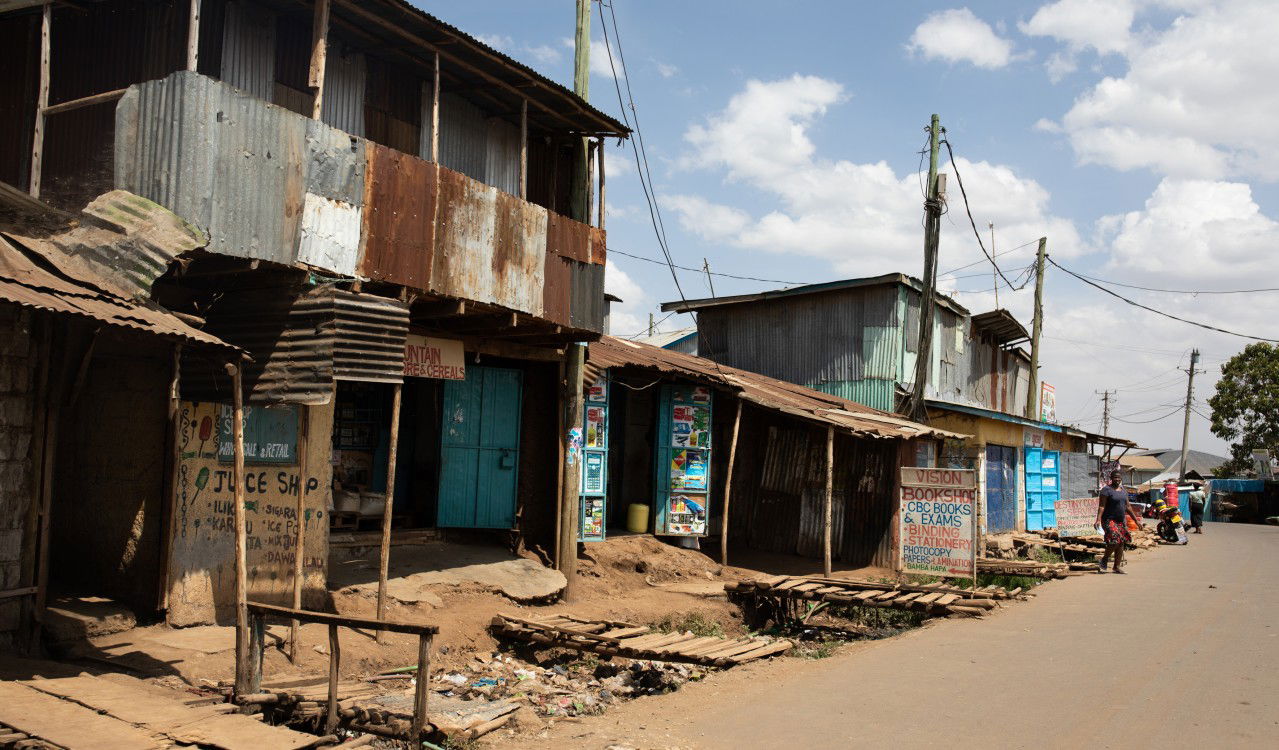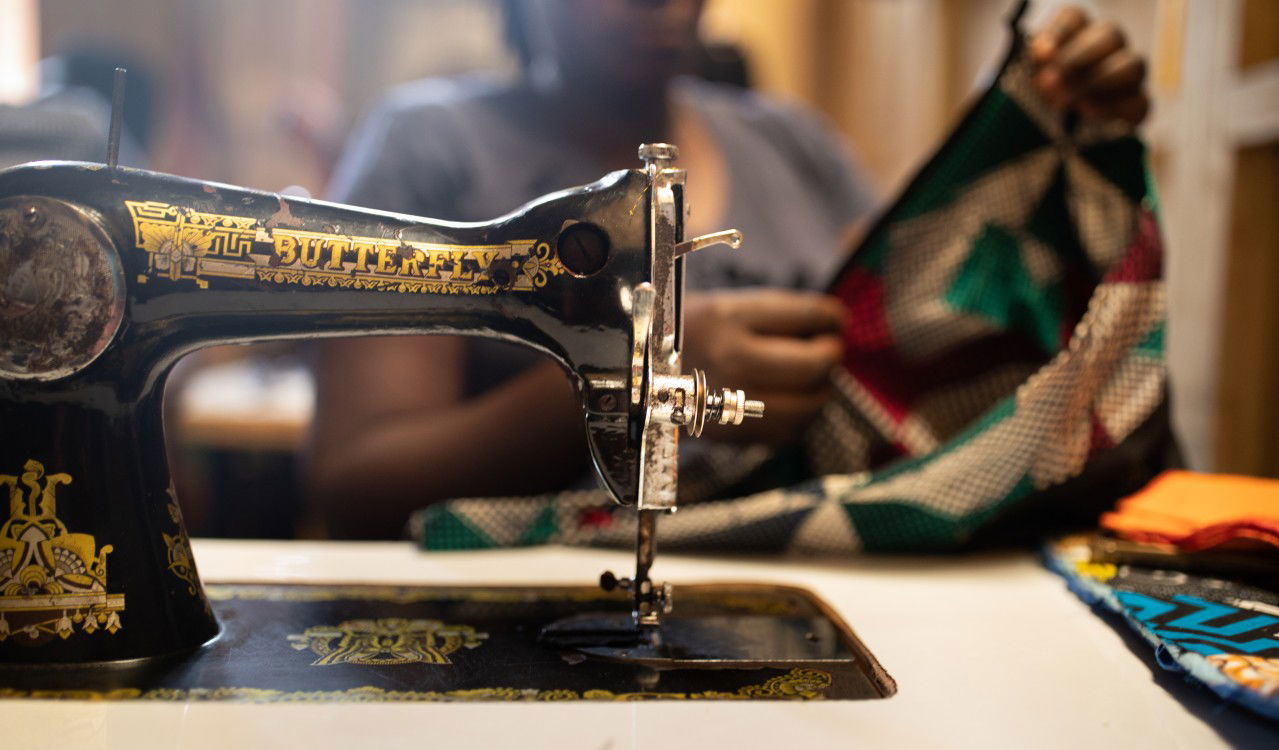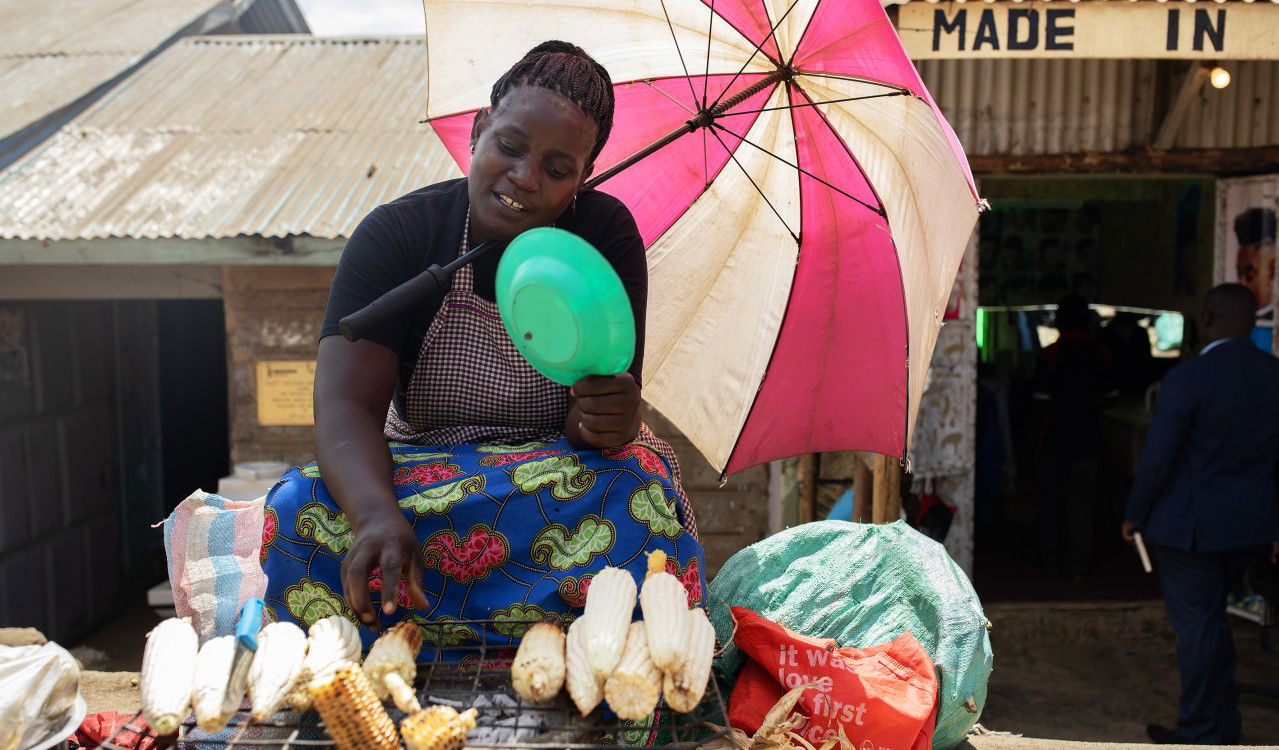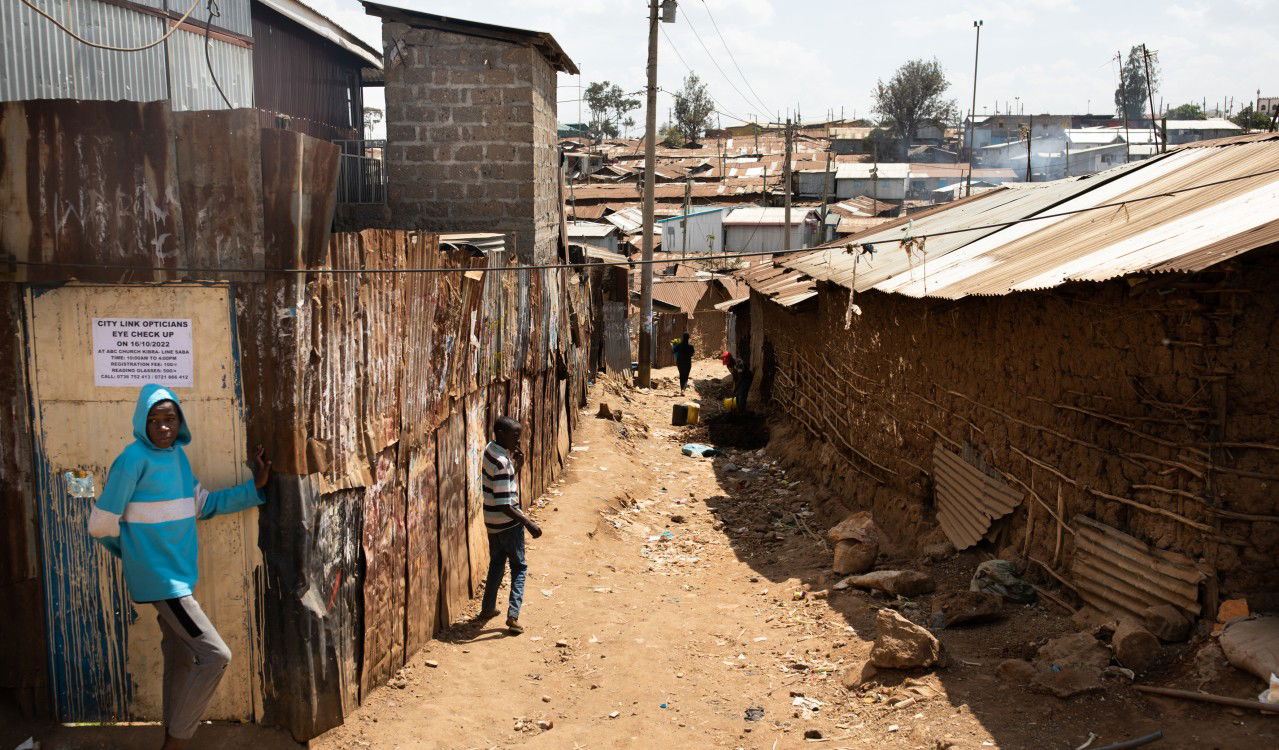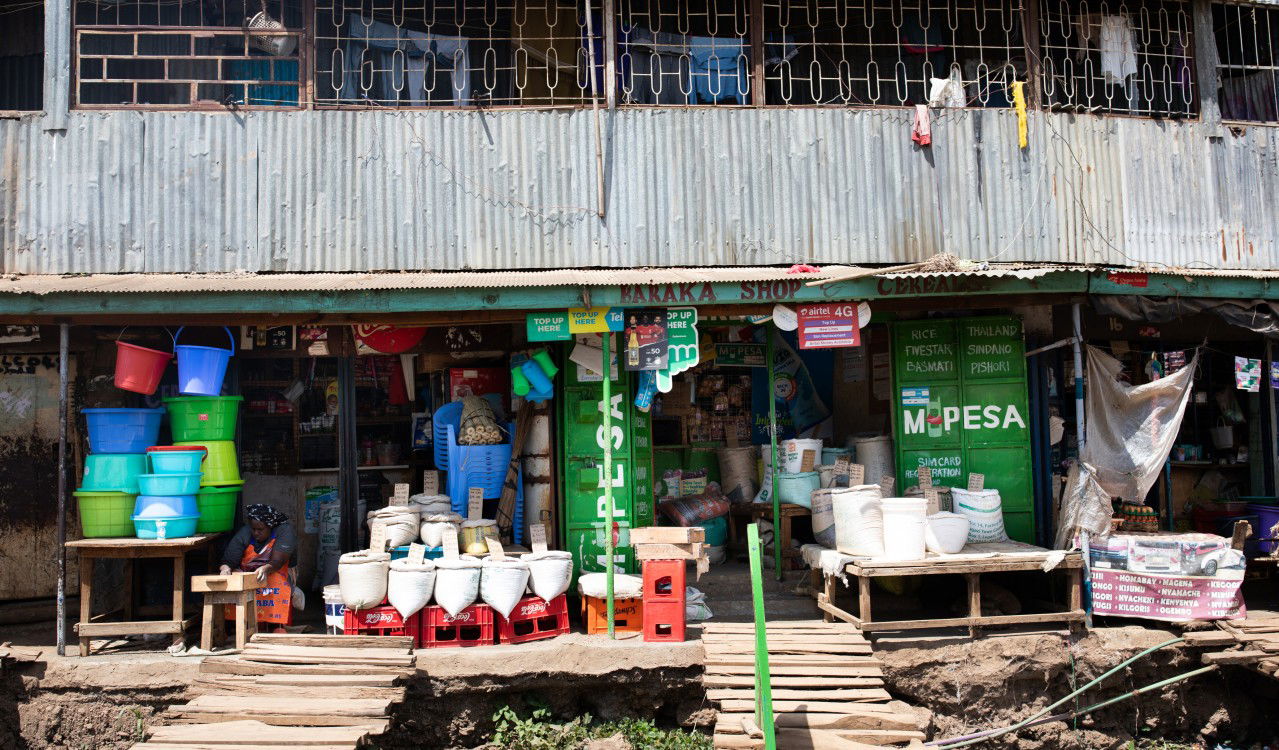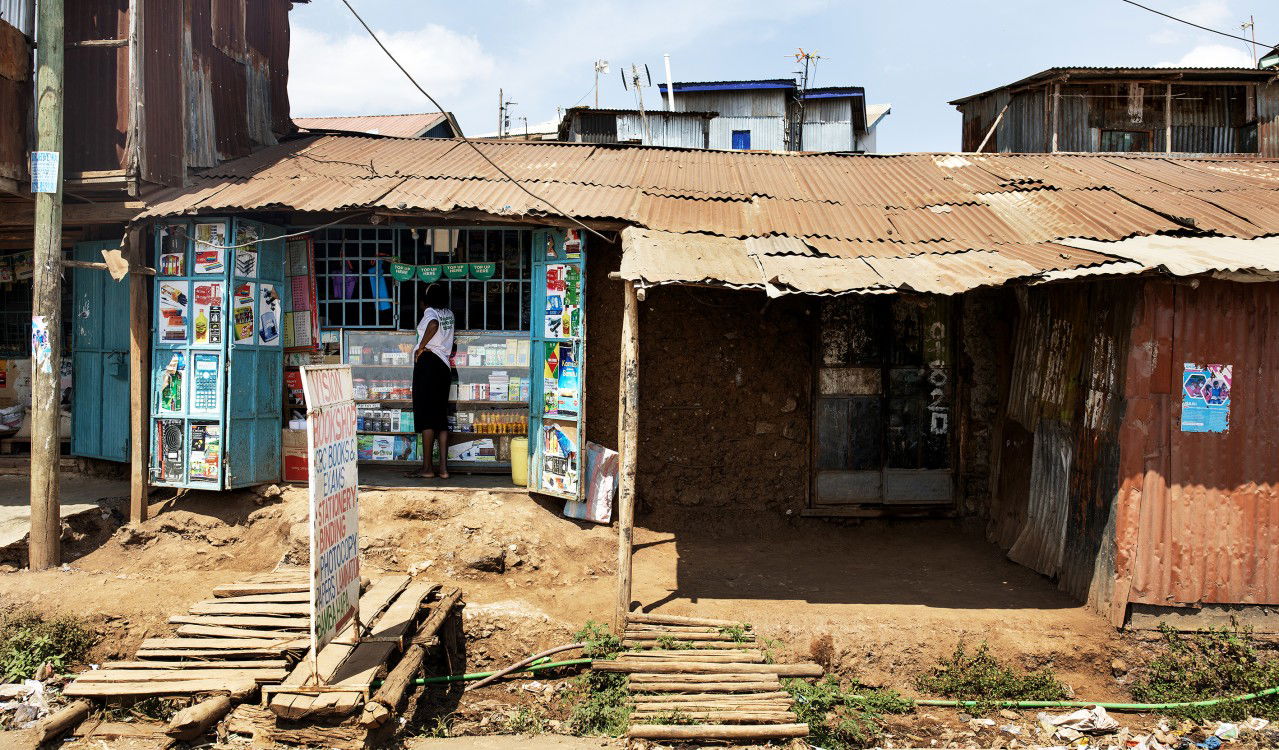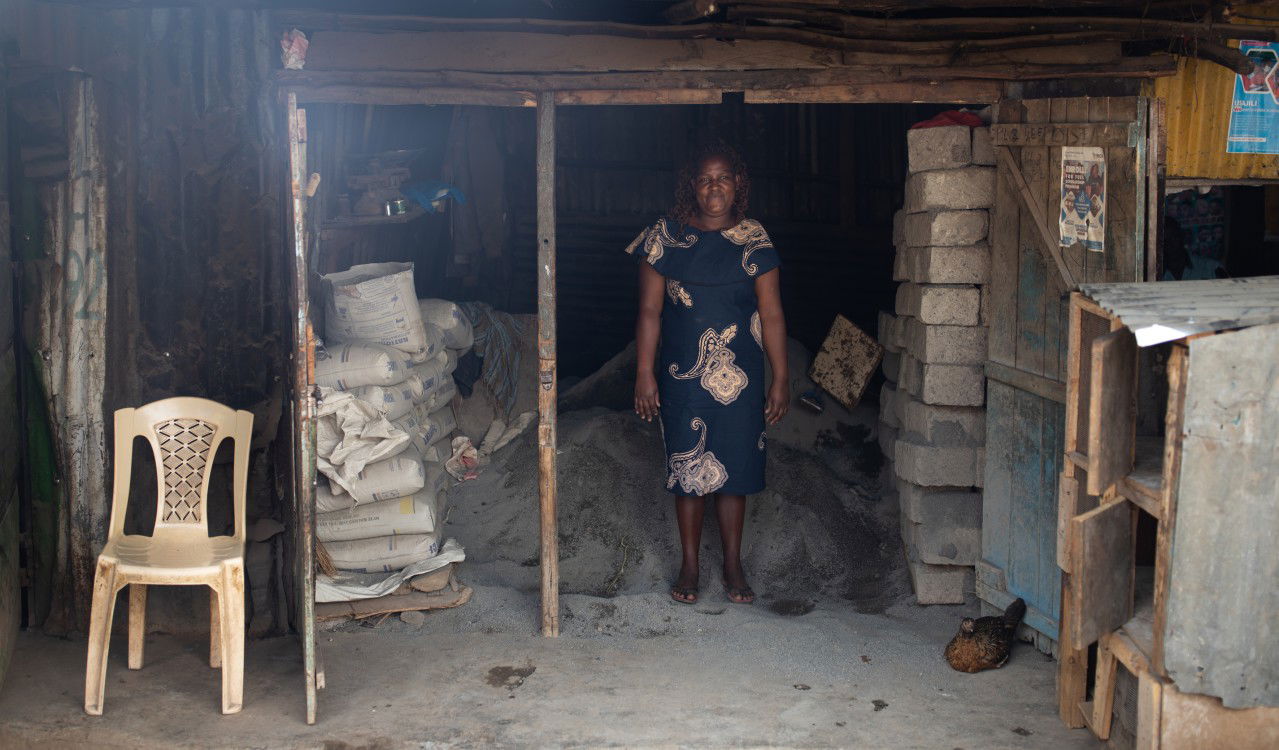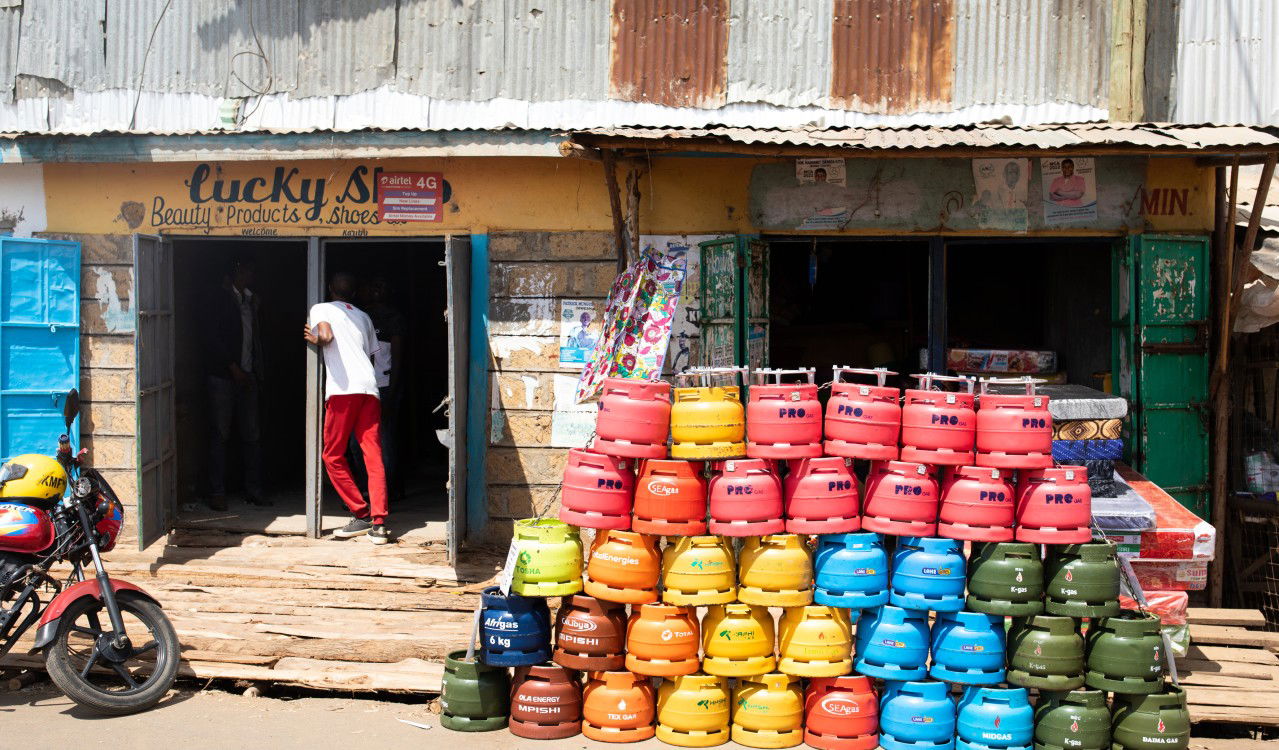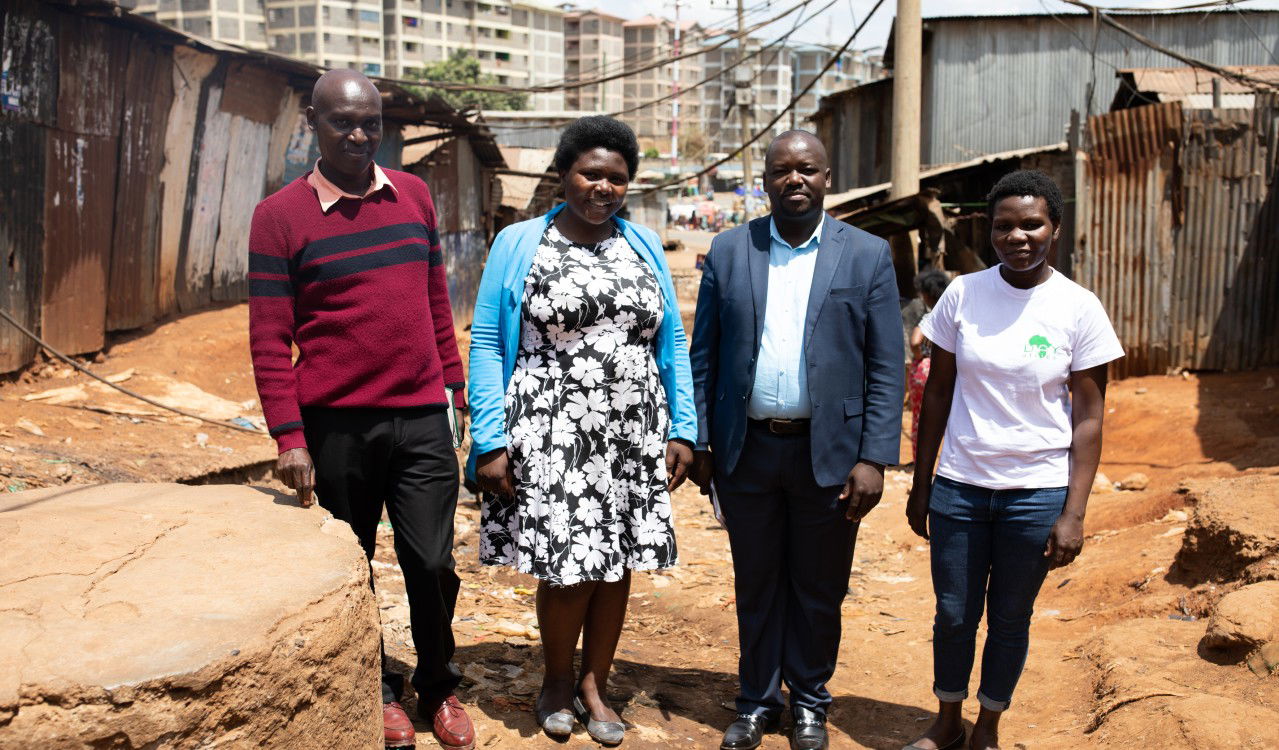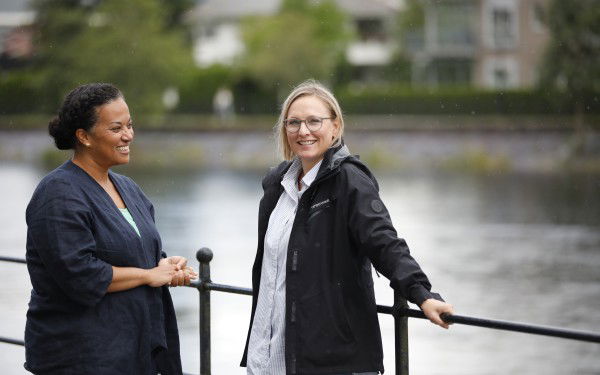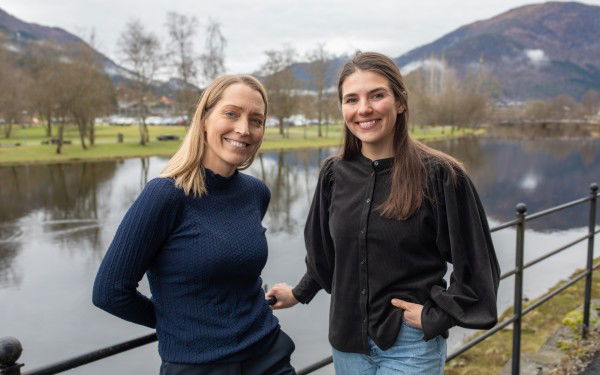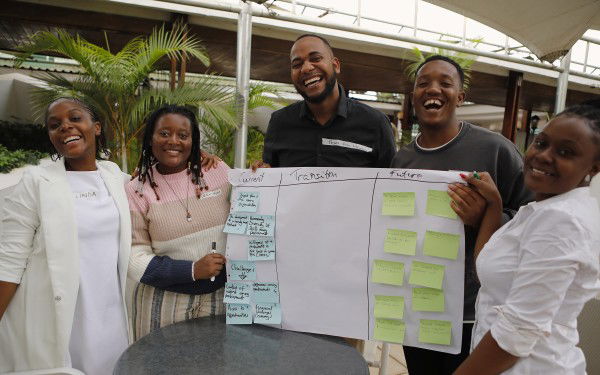Changing lives of young women in the slum of Kibera
2. March 2023
DAY Africa has helped more than 5000 women to create their own businesses in Africa’s largest slum.
There is an orange-dustcover on the corrugated iron-roofs. Goats, chicken, cats, and cattle are strolling around, looking for a bite to eat. Wherever you go, you can see streams of open sewerage and lines of rubbish following the dry dusty roads, as there are no sewerage systems in Kibera. The slum is home to about 500 – 800 000 people, most of them young.
– Eight out of ten youth in Kibera are unemployed. That is 80 per cent. Due to lack of employment, many young women engage in transactional sex, for as little as 100 shilling (1 USD), just to get something to eat. Many of them end up contracting HIV or with a child. This is a vicious circle it is difficult to break, says Vena Atieno Nyabala.
She is a Norec-participant working for the NGO DAY Africa. It works to give women in Kibera a path out of poverty through an intensive vocational training programme, with components of entrepreneurship, digital skills, fashion design and tailoring, micro farming and business development.

Decrease in crime
Vena and Evans Nyariki are this year’s Norec-participants, and two of several DAY Africa facilitators. For the past three years, the organisation has worked together with community members at our Soweto East Resource Centre Kibera, and has become a stabilising factor in the area. The programme has resulted in a decrease in crime, as young people see that there are options beyond.
– Since 2018, we have trained more than 5000 youth, mainly young women on how to start and run their own micro business. With funding from Norec we have established several types of trainings to enable the women to support themselves and their families. And we are still expanding into new areas to bring real change beyond Kibera, says Evans.
When we educate youth, they will in turn educate their parents, so they both can draw on what we teach them. We see that we contribute to changing people’s lives, and that makes me immensely proud.
Child-care combined with Vocational Training
In one of the rooms at the centre, 30 women and a handful of men are seated. It is a day they have been waiting for. They will be getting a diploma showing that they have graduated from the training programme. It is time for them to put what they have learnt to use in creating a job of their own.
– The youth in Kenya want employment. They say that “with business there is no money.” But I keep telling them that I will not encourage them to be employed by someone. I want them to employ themselves, says Vena.
In the room next door, nine women are busy sewing. Some repair clothes; others tailor dresses and bags to sell. Their children are playing at the centre’s day-care, an initiative that has opened doors for the young mothers of Kibera, and enabled them to enroll in the programmes.
The women start their own businesses with the help of a sewing-machine, selling their products. If they prefer to be employed by someone, we link them up with other organizations. Most importantly, we counsel and support them into employment, so that they don’t drift back to the slum life, says Vena.
-
Facts about the project
- Majority of residents in Kibera are below the age of 35.
- Programmes offered by DAY Africa include intensive vocational training programmes such as entrepreneurship skills, digital skills, fashion design and tailoring, micro business development start up skills as well as job readiness skills programs.
- DAY Africa has identified that their interventions have led women to start sustainable business, youths to acquire new skills and as a whole, lower crime rates in the area.
- DAY Africa works with SDGS including eradication of poverty, gender equity, good health, decent work and peaceful and just societies.
- Since 2018 DAY Africa have trained 5000 youth, mainly young women in Kibera and other slums in Nairobi on how to start and run their own microbusiness.
- The exchange project is a cooperation between DAY Africa in Kenya og Inkululeko in South Africa, where the aim is to incorporate local knowledge in development work and empowering women.
New Life
Since 2020, DAY Africa has exchanged knowledge with a partner-organizations in South Africa Inkululelo. This has been a digital exchange due to the pandemic.
– Our main focus is always youth empowerment, mostly the girl child. In Africa, women and girls are often seen as a source of income through marriage. Through our programme, we give the girls practical tools and teach them how they can change their lives; that one small idea can be the start of a way out of poverty, says Evans.
– The exchange programme has enabled us to adopt new skills and ideas from Inkululeko in South Africa, and incorporate local knowledge in development work, he adds.
Small shops are lining the dusty roads of Kibera. Some sell bananas, freshly baked bread and fried corn, and others sell cement and bricks – all goods that are needed in people’s everyday life. One of the shopkeepers is Emily, who has found her niche in selling vegetables: Before I joined the DAY Africa programme, I was seriously considering closing my shop. I saw no future in my business. But now, I have learned how to build up a stock of goods, to keep my books, separate the finances of my business and my private life, and I have been able to save enough money to feed myself and my family.
Just down the road, Vivian has opened a cement shop, where she manufactures and sells bricks:
DAY Africa has helped me a lot. I have learned how to better communicate with my customers, and how I can expand my business, she says.
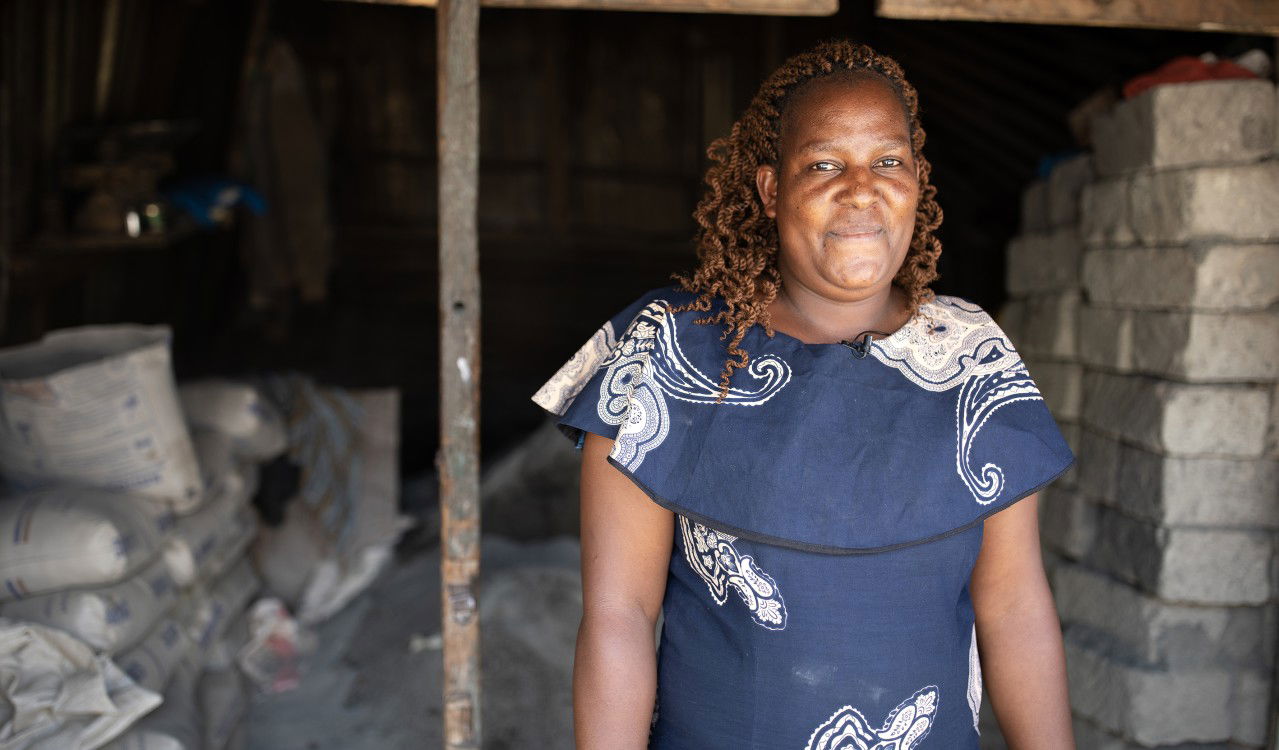
The world outside Kibera
Vena and Evans point to vocational training to make a lasting change in Kibera.
– When we educate youth, they will in turn educate their parents, so they both can draw on what we teach them. We see that we contribute to changing people’s lives, and that makes me immensely proud, says Vena.
– Everyone has the potential to change their own lives. Everyone can get out of the slum and start anew if they take responsibility for their own destiny. Because there is a world outside of Kibera. But this world will not come to you. You will have to look and work for it, Vena concludes.


